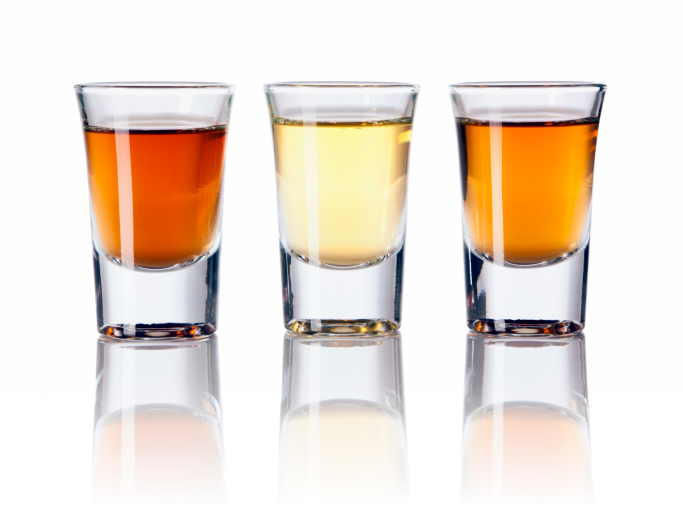
Alcohol poisoning occurs when a person consumes an excessive amount of alcohol. Alcohol can depress or stop nerve signals that control breathing and the gag reflex that prevents choking. Alcohol poisoning is a serious condition that can lead to irreversible brain damage or death if not treated immediately.
RELATED: Too Much Alcohol Can Affect Your Looks
What are the 5 signs of alcohol poisoning?
The five critical signs of alcohol poisoning that require immediate medical attention are:
- Mental confusion, stupor, or unresponsiveness: The person may be very confused, disoriented, or difficult to rouse. They might not respond to talking, shouting, or gentle shaking. In severe cases, they may be unconscious and unable to be awakened at all.
- Vomiting while unconscious or semi-conscious: If someone is vomiting while passed out and cannot wake up, there’s a high risk of choking on their vomit, which can be fatal.
- Slow or irregular breathing: Their breathing may be shallow, slow (fewer than eight breaths per minute), or with long pauses (more than 10 seconds between breaths). This indicates that the alcohol is severely affecting their central nervous system.
- Pale or bluish skin color (cyanosis): This is a sign of a lack of oxygen. The skin, especially around the lips and fingernails, may appear bluish or pale and feel cold or clammy.
- Low body temperature (hypothermia): The person’s body temperature may drop dangerously low. They might feel cold to the touch, even if the environment is not cold, and may shiver or have cold, clammy skin.
The level of alcohol in the blood continues to rise even after a person stops drinking.
It can take around 30 to 90 minutes for the alcohol to enter the bloodstream, circulate throughout the body, and cause full intoxication. The amount of time depends on how quickly and how much the person drank, along with what else is in the stomach.

What to do if you have alcohol poisoning
Drinking coffee, walking or sleeping it off, or taking a cold shower will not help reverse the symptoms of poisoning.
Immediate medical treatment is always needed if you suspect alcohol poisoning. Remember, a person doesn’t have to display all of the symptoms. If a person is unconscious, they are at risk of dying.
Call 911 or other emergency services if you or someone else:
- Has the symptoms of alcohol poisoning. These can include vomiting, coughing up blood, gasping for breath, passing out, and seizures.
- Has a history of heavy drinking and is having severe withdrawal symptoms but is not willing to get treatment.
- Has delirium tremens (DTs), which can lead to death. Symptoms can include seizure, shaking, a fast heartbeat, and seeing or hearing things that aren’t there (hallucinations).
- Is thinking or talking about suicide or harming others.
While waiting for emergency help to arrive, here’s what you should and should not do:
Do:
- Stay with the person: Do not leave them alone, as their condition can worsen rapidly. Be prepared to provide information to paramedics about what and how much they drank, if known.
- Keep them awake if possible: If they are conscious, try to keep them awake and sitting up.
- Place them in the recovery position if unconscious: Gently roll them onto their side (the recovery position) to prevent choking if they vomit. Tilt their head back slightly to ensure their airway remains open.
- Check their breathing: Ensure they are breathing regularly. If breathing stops, be prepared to administer CPR if you are trained.
- Keep them warm: Cover them with a blanket to prevent hypothermia.
Do Not:
- Do not assume they will “sleep it off”: Alcohol levels in the blood can continue to rise even after someone stops drinking.
- Do not give them food or drinks: This includes coffee or caffeinated beverages, which can worsen dehydration.
Do not try to make them vomit: This can increase the risk of choking and can cause further complications. - Do not give them a cold shower: This can cause their body temperature to drop dangerously (hypothermia) and can also cause shock.
- Do not try to walk them around: They may be uncoordinated and at risk of falling and injuring themselves.
Medical Treatment for Alcohol Poisoning:
In the hospital, medical professionals will provide supportive care, which may include:
- Monitoring vital signs: Closely tracking breathing, heart rate, blood pressure, and temperature.
- Ensuring an open airway: Providing oxygen therapy or, in severe cases, inserting a breathing tube (intubation).
- Intravenous (IV) fluids: To treat dehydration and electrolyte imbalances. They may also administer glucose if blood sugar levels are low.
- Vitamins and glucose: To help prevent serious complications.
- Stomach pumping (gastric lavage): In some cases, if the person has recently consumed a very large amount of alcohol, a tube may be inserted into the stomach to remove its contents.
- Hemodialysis: In rare cases, particularly with toxic alcohols like methanol or isopropyl alcohol, dialysis may be needed to filter the alcohol from the blood.
Key Takeaway: Alcohol poisoning is a life-threatening emergency. Immediate medical attention is crucial. Do not attempt to treat it at home. Your actions while waiting for help can significantly impact the outcome.

Preventing alcohol poisoning
The Mayo Clinic suggests the following tips to prevent alcohol poisoning:
- Drink alcohol in moderation, if at all. If you choose to drink alcohol, do so in moderation. For healthy adults, that means up to one drink a day for women of all ages and men older than age 65, and up to two drinks a day for men age 65 and younger. When you do drink, enjoy your drink slowly.
- Don’t drink on an empty stomach. Having some food in your stomach may slow alcohol absorption somewhat, although it won’t prevent alcohol poisoning if, for example, you’re binge drinking.
- Communicate with your teens. Talk to your teenagers about the dangers of alcohol, including binge drinking. Evidence suggests that children who are warned about alcohol by their parents and who report close relationships with their parents are less likely to start drinking.
- Store products safely. If you have small children, store alcohol-containing products, including cosmetics, mouthwashes and medications, out of their reach. Use child-proof bathroom and kitchen cabinets to prevent access to household cleaners. Keep toxic items in your garage or storage area safely out of reach. Consider keeping alcoholic beverages under lock and key.
- Get follow-up care. If you or your teen has been treated for alcohol poisoning, be sure to ask about follow-up care. Meeting with a health professional, particularly an experienced chemical dependency professional, can help you prevent future binge drinking.
Alcohol poisoning is a serious, life-threatening condition that needs to be treated immediately. If you suspect that you or someone else is suffering from alcohol poisoning, don’t wait – contact a healthcare professional or 911 immediately.








